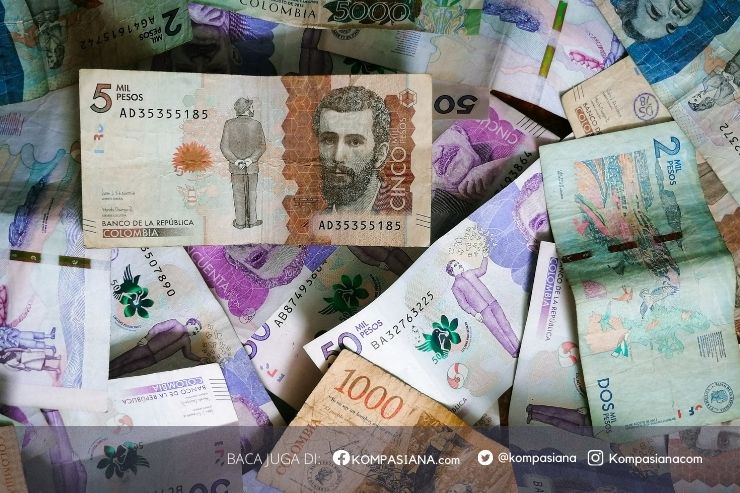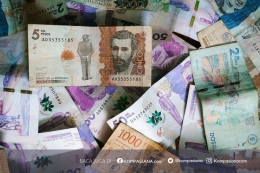The problem of corruption is becoming a hot topic in society. Corruption is a violatin of the law that is difficult to eradicate. Various cases of corruption that occur have triggered Indonesia to overcome them. One of the ways is by establishing an anti-corruption agency namely KPK. However based on the data from Tranparency International, corruption cases in Indonesia have not been resolved properly. Tranparency.org in 2017 reveals that Indonesia has corruption perceptions index 37 score out of 100. For global rank, Indonesia is ranked 96th out of 180 countries in the world. Although there is KPK, corruption laws in Indonesia are still weak and sanctions given to corruptors are still less assertive. In addition, law enforcement officers can still be bribed. These what make corruption still exist in Indonesia. This is a big problem that needs to be solved. So this essay will explain how to reduce the level of corruption.
Eradicating corruption is not just a matter of capturing the corruptors, but also on the prevention efforts that must be done. "Prevention is diverse, can be through film and music, but the most important is through education," said Vice Chairman of Corruption Eradication Commission (KPK) Adnan Pandu Praja (Period 2011-2015) at Graduation Ceremony School Anti Graft Aceh (SAKA) in SAKA Building. The Corruption Eradication Commission (KPK) considers that anti-corruption programs should be included in the curriculum and become part of the subjects at school, even as compulsory subjects at universities. Starting from elementary school to college, it became one of the KPK's focus in combating corruption. From here, some universities in Indonesia plan to include anti-corruption education in their programs. An anti-corruption course aims to educate the nation's successors to avoid corruption. Responding to university proposals, cultural observer and anti-corruption activist, Mr Benny Susetyo welcomed the proposal. According to Benny, for anti-corruption education to be effective and liked, students are taught to think critically that corruption is a crime. "By being invited to critical thinking can be known to the deepest thoughts among students, indirectly given the sense that if doing corruption is a crime," said Benny (Public relations of KPK, 2015). In addition, in the course it is also taught about ethical conformity, integrity, professionalism and shame. He added, in the course students should not be assessed by a number or a particular letter, but judged by seeing how his behavior on campus. "Therefore, in the course, it can be combined with religious lessons as well," Benny said. He added that anti-corruption programs are indeed targeted for long-term education programs, such as those seeking to build awareness for non-corruption. "Where in the structure of corrupt and manipulative, students are taught not to corrupt. Therefore, this is a long-term program, to teach students not to corrupt," said Benny. The desire to include anti-corruption education emerged in the Forum Rector Indonesia event in Yogyakarta, where the Indonesian Rector Forum will cooperate with KPK to carry out anti-corruption education for the students. Forum Rector Indonesia proposed, as campus is a collection of intelectual people who must actively fight againts corruption, anticorruption education should be implemented from the beginning. With this anti-corruption education, Indonesian successors are expected not to practice corruption when they are adults and work. So education here serves to prevent corruption.
The existence of law enforcement is very important to eradicate corruption cases, because law enforcers who should pioneer the agenda of eradicating corruption. Soerjono Soekanto (2002:5), the factors affecting law enforcement that the main problem of law enforcement actually lies in the factors that can influence it, namely: the legal factor itself is in the form of law, law enforcement factors, namely the party that makes or implements the law, facilities or facilities that support law enforcement, the community factor, that is, the environment in which the law can be applied or applied, the cultural factor, the result of work, creativity and sense based on human initiative in life associations. In Indonesia, a sector still considered weak in the case of corruption is the law enforcers themselves. Law enforcement officers are required to be trained, honest, integrated and professional. So that law enforcement officers can dismantle corruption cases and dare to take action against anyone who is wrong. Unlike now where law enforcement can not use authority when dealing with criminal acts committed by high officials or officials. When the law enforcement sector has been addressed and can perform its duties and obligations it is expected that law enforcement officers can expose corruption cases. Then give strict sanctions to all perpetrators of corruption. It is hoped that the agenda of corruption eradication will be rolled out and supported by people who have long hope for firm action from law enforcers. If the law enforcement is good, corruption case can be resolved.
Corruption does occur in developing countries and is a factor inhibiting the development of the country. Indonesia is one of the developing countries which is still difficult to solve corruption cases. Thus, if there is a criminal act either in the form of a bribe or as a bribe recipient, it must receive sanctions in accordance with the rules of corruption in force. So far the government has tried to eradicate corruption. One of them is to establish an anti-corruption body now known as the Corruption Eradication Commission (KPK). In addition, the government has also begun implementing anti-corruption education to shape the anticorruption character of the nation's future leaders and establish firm laws. But this would not be perfect without support from the public, because in fact the most effective effort to combat corruption in Indonesia is good cooperation between the government and the general society. In addition, improving the quality of human resources (HR) will minimize the occurrence of criminal acts of corruption. The combination of all mentioned aspects is a perfect effort to combat corruption in Indonesia.
REFERENCE
Corruption Perceptions Index 2017. www.tranparency.org. 14 Maret 2018.
https://www.transparency.org/country/IDN
Koran Jakarta. 2016. "Pendidikan Antikorupsi Masuk dalam Perkuliahan". 11 April 2018.
Media Indonesia. 2012. "Penegakan Hukum Perlu Sinergi Aparat". 11 April 2018.







